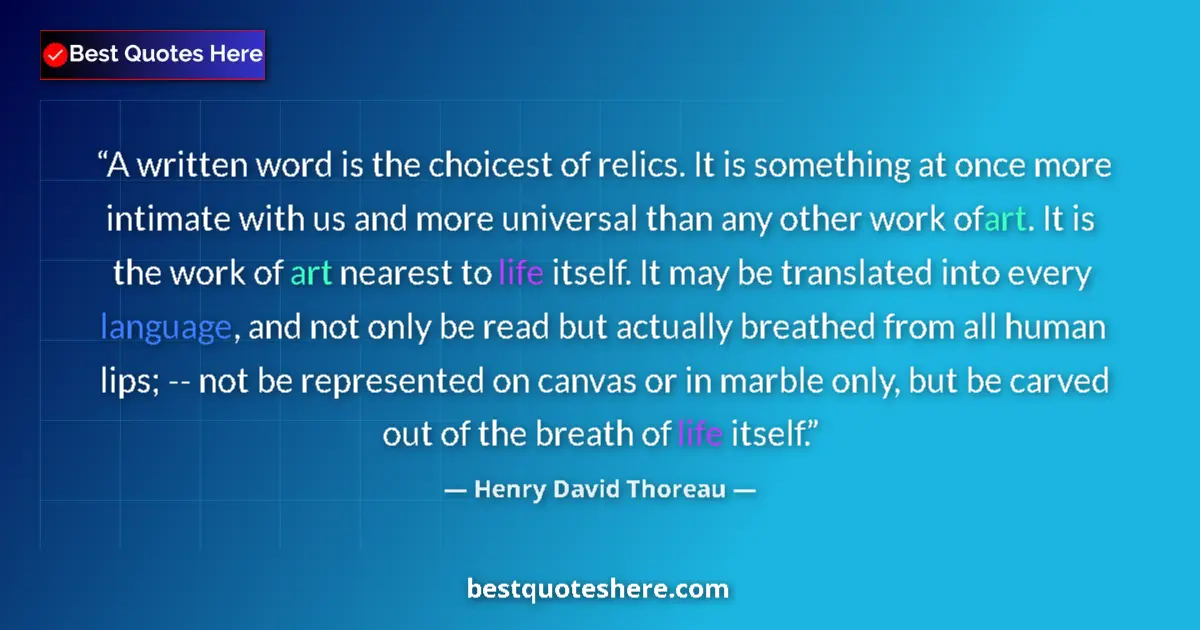"A written word is the choicest of..." - Quote by Henry David Thoreau
A written word is the choicest of relics. It is something at once more intimate with us and more universal than any other work of art. It is the work of art nearest to life itself. It may be translated into every language, and not only be read but actually breathed from all human lips; -- not be represented on canvas or in marble only, but be carved out of the breath of life itself.

More by Henry David Thoreau
“We have heard of a Society for the Diffusion of Useful Knowledge. It is said that knowledge is power, and the like. Methinks there is equal need of a Society for the Diffusion of Useful Ignorance, what we will call Beautiful Knowledge, a knowledge useful in a higher sense: for what is most of our boasted so-called knowledge but a conceit that we know something, which robs us of the advantage of our actual ignorance? What we call knowledge is often our positive ignorance; ignorance our negative knowledge.”
“How many things there are concerning which we might well deliberate whether we had better know them.”
“We discover a new world every time we see the earth again after it has been covered for a season with snow.”
More on Words
“I am indeed not her fool, but her corrupter of words. (Act III, sc. I, 37-38)”
“Words, English words, are full of echoes, of memories, of associations. They have been out and about, on people's lips, in their houses, in the streets, in the fields, for so many centuries. And that is one of the chief difficulties in writing them today -- that they are stored with other meanings, with other memories, and they have contracted so many famous marriages in the past.”
“Every word is a messenger. Some have wings; some are filled with fire; some are filled with death.”
More on Art
“When I'm in the studio, I'm looking for creativity I haven't matched yet, a feeling I haven't felt. It's a high.”
“And you who wish to represent by words the form of man and all the aspects of his membrification, relinquish that idea. For the more minutely you describe the more you will confine the mind of the reader, and the more you will keep him from the knowledge of the thing described. And so it is necessary to draw and to describe.”
“In the Greek cities, it was reckoned profane, that any person should pretend a property in a work of art, which belonged to all who could behold it.”